
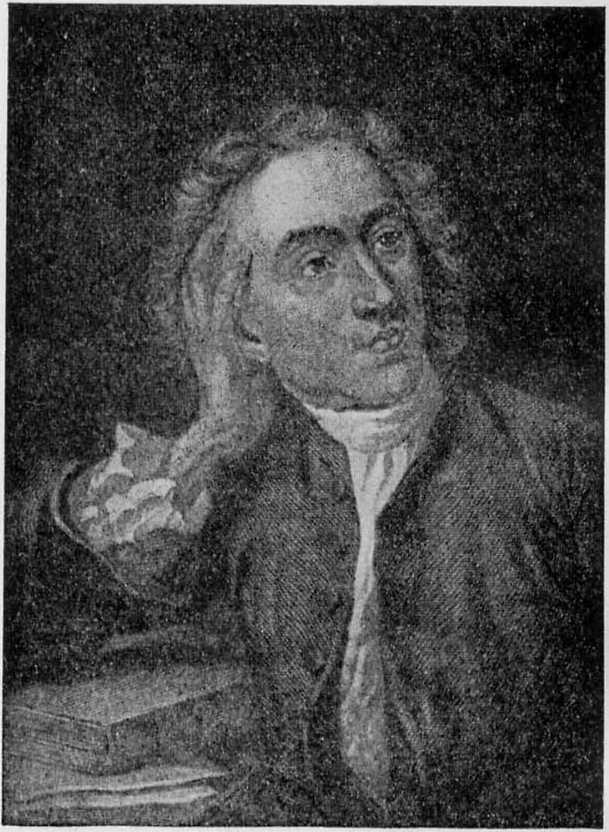
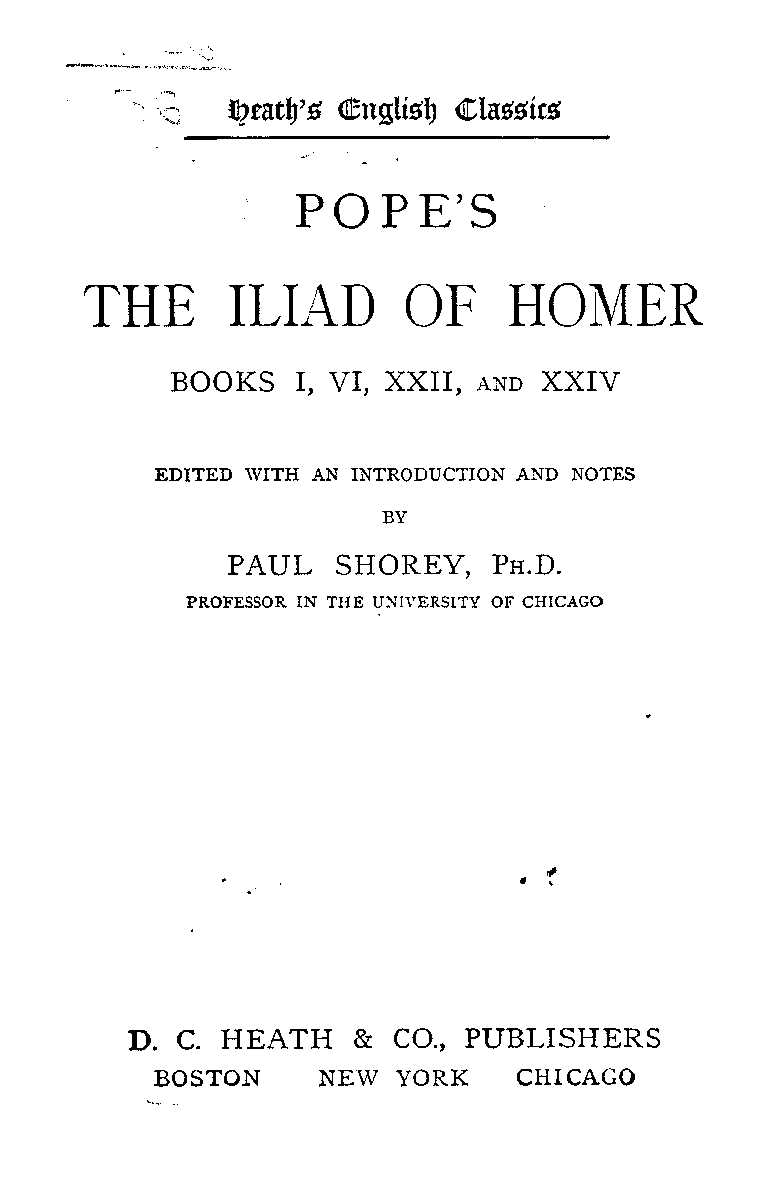
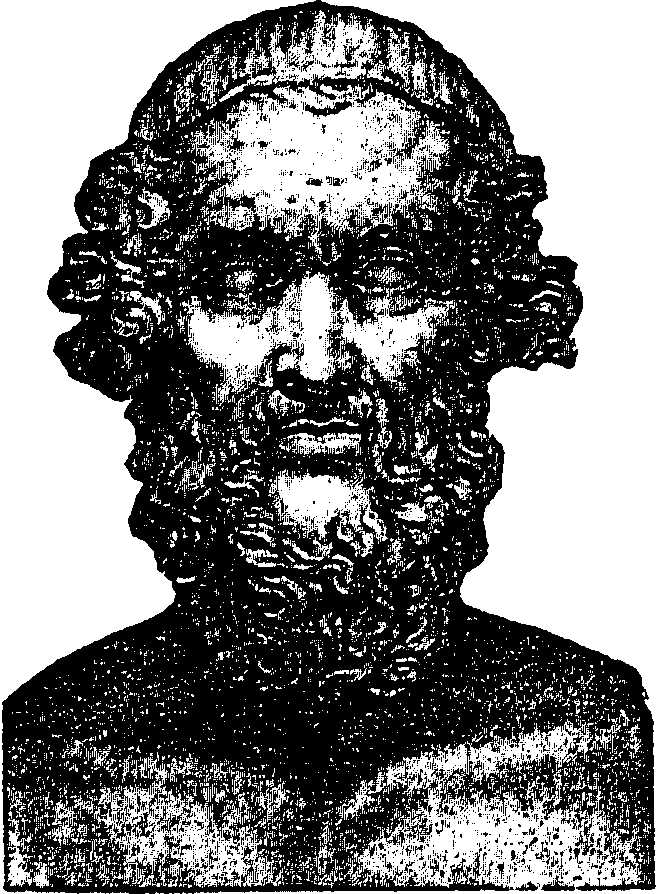
<2
ï?eatl)’6 CÊngltôl) Claöstcs
P O P E ’S
THE ILIAD OF HOMER
BOOKS I, VI, XXII, a n d XXIV
ED ITED WITH AN INTRODUCTION AND NOTES
BY
PAUL SHOREY, Ph.D.
PROFESSOR IN T H E UNIVERSITY OF CHICAGO
D. C. HEATH & CO., PUBLISHERS
BOSTON
NEW YORK
CHICAGO

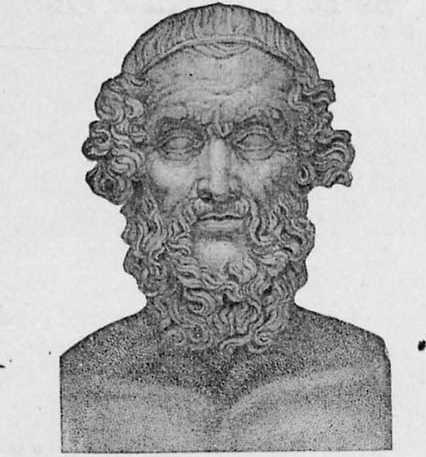

суд«4)ст*е*;_
КіОДИОШи
с с о р
в. И. Ля
*2U36-?g
C o pyrigh t, 1899
B y D. С H e a th & C a
I A 6

CONTENTS.
PAGE
I n t r o d u c t io n :
I. Homer and the I l i a d ...................................
v
Pope and Pope’s I l i a d ................................................. xx
T h e I l i a d :
Book I
.......................................................................................I
Book V I
....................................................................27
Book X X II
50
N o t e s
»
10 7
iii
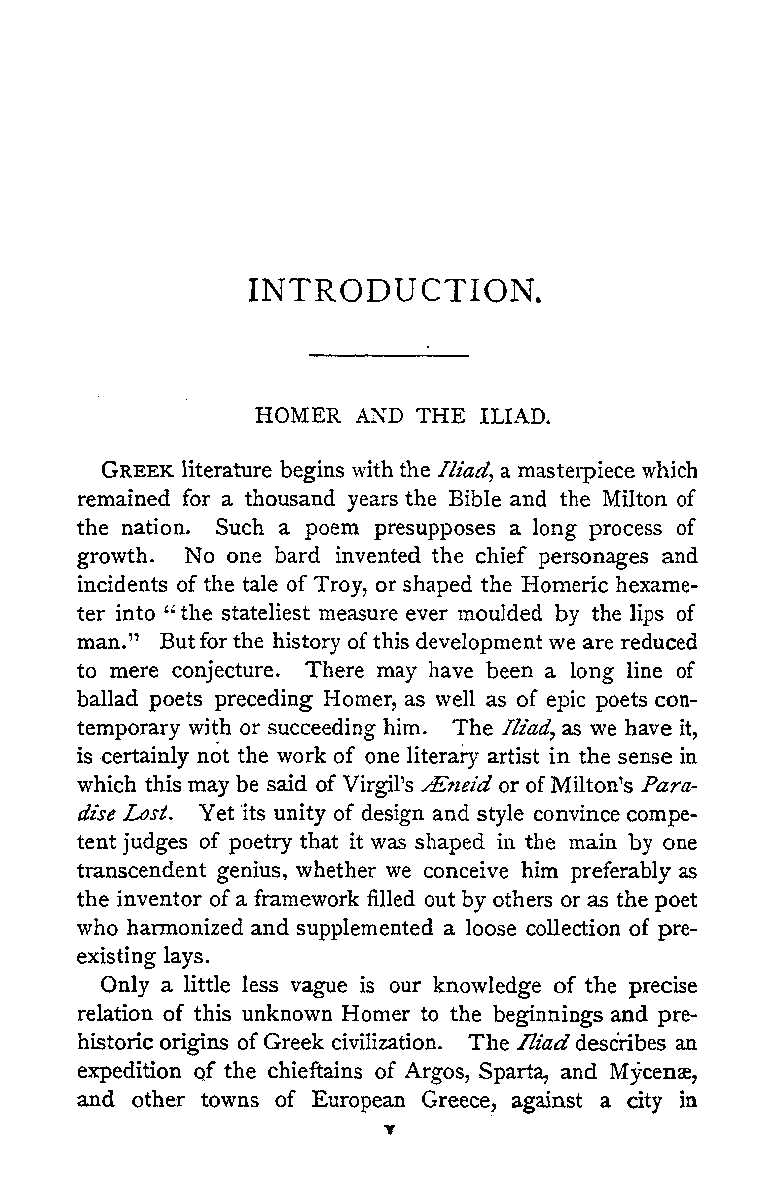
INTRODUCTION.
HOMER AND THE ILIAD.
G reek literature begins with the Iliad\ a masterpiece which remained for a thousand years the Bible and the Milton of the nation. Such a poem presupposes a long process of growth.
No one bard invented the chief personages and incidents of the tale of Troy, or shaped the Homeric hexameter into u the stateliest measure ever moulded by the lips of man.” But for the history of this development we are reduced to mere conjecture. There may have been a long line of ballad poets preceding Homer, as well as of epic poets contemporary with or succeeding him. The Iliad, as we have it, is certainly not the work of one literary artist in the sense in which this may be said of Virgil’s Æ neid or of Milton’s Paradise Lost. Yet its unity of design and style convince competent judges of poetry that it was shaped in the main by one transcendent genius, whether we conceive him preferably as the inventor of a framework filled out by others or as the poet who harmonized and supplemented a loose collection of preexisting lays.
 Гомер (Homer)
Гомер (Homer)